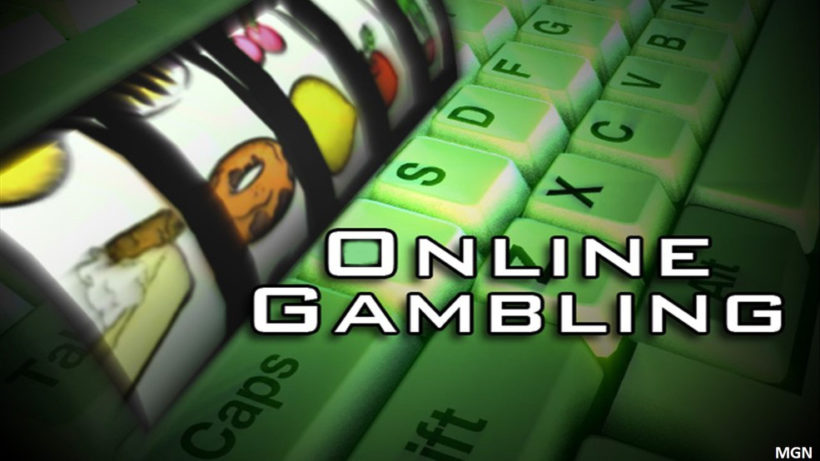Gambling Illegal
Online gambling industry makes an estimated $1 billion dollars annually. This is a huge business, and a lot of people have cashed in on it. But it has led to some ambiguous legal issues, as the legality of online gambling is constantly being challenged. Penalty for illegal gambling. Except as otherwise provided in this article, any person who illegally gambles or engages in interstate gambling as defined in § 18.2-325 shall be guilty of a Class 3 misdemeanor. If an association or pool of persons illegally gamble, each person therein shall be guilty of illegal gambling.
Definition of Illegal Gambling Generally, when someone engages in gambling activities where the outcome has a basis of chance rather than skill, there are at least a few participants and there is a wager with monetary exchange, it is gambling. The effort is a component of AGA’s “Stop Illegal Gambling – Play it Safe” initiative which is uniting gaming and law enforcement to expose the massive illegal gambling market that preys on consumers, siphons tax revenues and funds violent crime. AGA also launched a new website – StopIllegalGambling.org – to serve as an information hub.
Gaming and gambling in the United States have undergone a great boom in recent years. During the past decade, most states have expanded legalized gaming, including regulated casino-style games, sports betting, and lotteries. There has also been an explosion in opening Native American casinos, and the popularity of online gambling in the US has increased exponentially.
Decades ago, gambling used to be illegal almost in every part of the continental US, except for Nevada and New Jersey. However, as time flew by, more and more states have made various types of gambling legal, ranging from Indian casinos, bingo and poker rooms, off-track horse race betting, and more. While some states have approved certain types of gambling, other types have remained “illegal”, so to speak, like online gambling. Almost all states have laws that ban at least some form of gambling.
Understanding US gambling laws is not only important for those involved in the industry, but also for average gamblers who want to know whether he or she can start a fantasy football league, a home poker game, or an NCAA tournament betting pool at the workplace.
As of this writing, a lot of things have changed in the US gambling laws. What was once considered illegal on a federal level is now being made legal by the individual US States, provided that casino operators, and in some cases online gambling operators, apply for the necessary permits and licenses within the jurisdiction in which they wish to operate. If gambling was only allowed in Vegas and Atlantic City before, now states like Colorado, West Virginia, Indiana, Iowa, and Pennsylvania are also coming around, with more and more US states following suit.
Federal Gambling Laws
Below you’ll find links to various U.S. Federal Gambling Laws.
- Unlawful Internet Gambling Enforcement Act. This law applies to online gambling operators accepting financial instruments to fund accounts for players. including online casinos.
- Wire Act of 1961 (See also: Wire Act Violation: Internet v. Phone)
Additional Federal Statutes
Transportation of Gambling Devices Act of 1951.
In 1951, Congress enacted the Transportation of Gambling Devices Act. [236] The Act, more commonly known as the Johnson Act, [237] which has been amended several times during the intervening years, makes it unlawful to knowingly transport a gambling device to a state where such a device is prohibited by law. [238] The manufacturers and distributors of gaming devices for interstate commerce must register each year with the United States Department of Justice, and the devices must be appropriately marked for shipment. [239]
(a) The term “gambling device” means–
(1) any so-called “slot machine” or any other machine or mechanical device an essential part of which is a drum or reel with insignia thereon, and

(A) which when operated may deliver, as the result of the application of an element of chance, any money or property, or
(B) by the operation of which a person may become entitled to receive, as the result of the application of an element of chance, any money or property; or
(2) any other machine or mechanical device (including, but not limited to, roulette wheels and similar devices) designed and manufactured primarily for use in connection with gambling, and
(A) which when operated may deliver, as the result of the application of an element of chance, any money or property, or
(B) by the operation of which a person may become entitled to receive, as the result of the application of an element of chance, any money or property; or
(3) any subassembly or essential part intended to be used in connection with any such machine or mechanical device, but which is not attached to any such machine or mechanical device as a constituent part. [240]
The interstate shipment of hardware or software for use in connection with an Internet or Interactive gaming system may trigger the Johnson Act, as well as the Interstate Transportation of Wagering Paraphernalia Act discussed above. [241]

Bank Records and Foreign Transaction Act of 1970.
In 1970, Congress passed the Bank Records and Foreign Transaction Act, [242] which is better known as the Bank Secrecy Act (BSA). [243] The BSA required “financial institutions” to report all currency transactions greater than $10,000 in effort to fight money laundering. This obligation was first limited to just banks. In 1985, the United States Treasury Department extended the requirement to casinos through the adoption of regulations. [244] Nevada casinos enjoy an exemption from the CTR reporting requirements of the BSA. [245]
Internet or interactive casinos will certainly be subject to some form of currency reporting requirement whether it is the BSA or Nevada Gaming Commission Regulation 6A, or both.
Money Laundering Control Act of 1986.
In 1986, Congress enacted the Money Laundering Control Act, [246] codified at 18 U.S.C. §§ 1956, 1957. Section 1956 applies to the knowing and intentional laundering of monetary instruments. [247] Section 1957 pertains to monetary transactions involving property that is “derived from specified unlawful activity,” which includes “racketeering activity” under RICO. [248]
Electronic Communications Privacy Act of 1986.
In 1986, Congress enacted the Electronic Communications Privacy Act (ECPA), [249] codified at 18 U.S.C. § 2510 et seq. The legislation amended Title 18 of the United States Code to extend the prohibition against the unauthorized interception of communications from wire and oral communications to “electronic communications,” which are defined as:
“electronic communication” means any transfer of signs, signals, writing, images, sounds, data, or intelligence of any nature transmitted in whole or in part by a wire, radio, electromagnetic, photoelectronic or photooptical system that affects interstate or foreign commerce, but does not include–
(A) any wire or oral communication;
(B) any communication made through a tone only paging device;
(C) any communication from a tracking device (as defined in section 3117 of this title); or
(D) electronic funds transfer information stored by a financial institution in a communications system used for the electronic storage and transfer of funds. [250]
The term “intercept” means “the aural or other acquisition of the contents of any wire, electronic, or oral communication through the use of any electronic, mechanical, or other device.” [251]
ECPA provides exceptions for the law enforcement to intercept communications where either (1) law enforcement is a party to the communication, or (2) where one of the parties to the communication has given prior consent to such interception. [252] The Nevada Gaming Control Board and Nevada Gaming Commission could take advantage of this exemption and be excluded from the reach of ECPA either through the promulgation of a regulatory provision (i.e., that licensees will permit the Board and Commission to monitor all electronic communications with patrons) or by imposing conditions on the licenses o f operators of Interactive gaming.
References
Federal
- Code of Federal Regulations: Title 25, Chapter 3: National Indian Gaming Commission, Department of the Interior
- Proposed Internet Gambling Prohibition Act of 1997 (not passed)
Federal Judicial Decisions
- AT&T Corporation v. Coeur d’Alene Tribe, 295 F.3d 899 (9th Cir. 2002)

Other References
- Joel Michael Schwarz, The Internet Gambling Fallacy Craps Out, 14 Berkeley Tech. L.J. 1021 (1999).
- “14 Charged in Internet Betting” (Washington Post, March 5, 1998)
- General Accounting Office’s Overview of Internet Gambling Issues
Related Posts:
AGA is committed to stopping illegal gambling by partnering with law enforcement to develop national, state and local opportunities for action and engagement. The AGA will commission authoritative research on all forms of illegal gambling and strengthen partnerships with elected officials, law enforcement and regulators to combat this national problem that’s siphoning tax revenues from state and localities, and tarnishing our highly regulated industry’s reputation.
AGA Law Enforcement Summit Breaks New Ground
Read More01/04/17
More than 30 law enforcement leaders from across the country gathered in June 2016 at AGA’s office in Washington for the organization’s first-ever Law Enforcement Summit to better understand the massive illegal sports betting market in the U.S and what steps can be taken to address it.
In a robust town hall discussion, law enforcement spoke of the illegal sports betting market as a significant problem and of regulation as a potential solution. Based on input from the Summit, the AGA’s Illegal Gambling Advisory Board authored an after-action report that serves as a guide for stakeholders – including policymakers, regulators and sports leagues – to develop potential solutions.
AGA Enters Second Year of “Stop Illegal Gambling” Initiative
Read More04/26/16
As it marks the one-year anniversary of its fight against illegal gambling, AGA announced that it will host a major law enforcement summit in June to further strengthen the partnership between the gaming industry and all elements of the law enforcement community.
The effort is a component of AGA’s “Stop Illegal Gambling – Play it Safe” initiative which is uniting gaming and law enforcement to expose the massive illegal gambling market that preys on consumers, siphons tax revenues and funds violent crime. AGA also launched a new website – StopIllegalGambling.org – to serve as an information hub.
Top Law Enforcement Officials Lead New Advisory Board
Read More09/23/15
The AGA announced the formation of its Illegal Gambling Advisory Board as part of its “Stop Illegal Gambling – Play it Safe” initiative.
Gambling Illegal Korea
Members of the Board will provide advice regarding industry efforts to develop actionable tools for law enforcement and to reduce the demand through public awareness; guide partnerships with law enforcement at the local, state, federal and international level; and provide strategies and perspective on necessary steps to plug existing holes in enforcement efforts.
Internet Sweepstakes Cafes: Unregulated Storefront Gambling in the Neighborhood
Read MoreGambling Illegal States
09/23/15
This paper addresses the proliferation of Internet sweepstakes cafes, including a thorough history of the venues and a look at where and how they operate
It outlines legislation and legal activity that already has taken place related to the issue in various states across the country. Finally, it addresses the legal arguments against sweepstakes cafes and offers expansive definitions for the prohibition of the machines through state law.
Gambling Illegal In Us
View reportGambling Illegal
OUR POLICIES